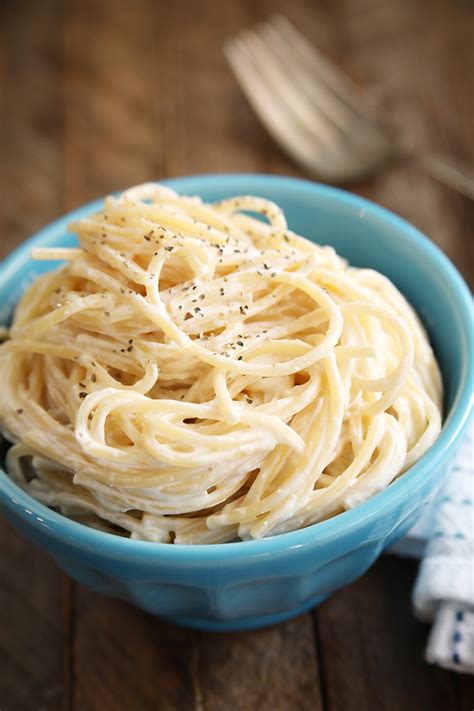Discover the rich history and unique ingredients of traditional Bulgarian dishes. Learn about the health benefits and modern twists on classic recipes.
Traditional Bulgarian Dishes
Contents
Bulgarian cuisine is known for its delicious and hearty traditional dishes that have been passed down through generations. The country’s rich history and diverse influences have resulted in a unique and flavorful gastronomic tradition.
One of the most famous traditional Bulgarian dishes is banitsa, a savory pastry made with flaky filo dough and filled with a mixture of eggs, cheese, and sometimes spinach or leeks. This iconic dish is often enjoyed as a breakfast or snack and is a staple of Bulgarian cuisine.
Kavarma is another popular dish that is a testament to Bulgaria’s rich culinary heritage. This slow-cooked stew is made with tender chunks of meat, onions, and peppers, seasoned with paprika and other aromatic spices. Kavarma is often served with a side of rice or potatoes and is a comforting and satisfying meal.
In addition to savory dishes, Bulgarian cuisine also boasts a wide variety of desserts that are beloved for their sweet and indulgent flavors. From honey-soaked pastries to creamy rice puddings, Bulgarian desserts are a delightful end to any meal.
Overall, traditional Bulgarian dishes are a celebration of the country’s agricultural abundance and culinary ingenuity. They offer a glimpse into the rich and diverse tapestry of Bulgarian culture and continue to be cherished and enjoyed by locals and visitors alike.
History of Bulgarian Cuisine
Bulgarian cuisine has a rich and varied history that dates back to ancient times. Influenced by a range of cultures, including Thracian, Greek, Roman, and Ottoman, Bulgarian cuisine has developed into a unique and diverse culinary tradition.
Traditional Bulgarian Dishes are often prepared using simple and wholesome ingredients, such as dairy, grains, and vegetables, reflecting the country’s agricultural heritage. The use of fresh, locally sourced produce is a key characteristic of Bulgarian cuisine, with dishes often featuring ingredients like yogurt, feta cheese, and peppers.
Over the centuries, Bulgaria’s cuisine has been shaped by its interaction with neighboring countries and cultures. The History of Bulgarian Cuisine is marked by a blend of influences, resulting in a fusion of flavors and cooking techniques that set it apart from other Balkan cuisines.
From hearty stews and soups to savory grilled meats and pastries, Bulgarian cuisine features a wide array of delicious dishes that showcase the country’s culinary history. The use of aromatic herbs and spices, as well as the practice of pickling and preserving foods, are also characteristic of Bulgarian cooking.
In recent years, there has been a resurgence of interest in Bulgarian cuisine, with chefs and food enthusiasts exploring the Modern Twists on Bulgarian Classics and experimenting with innovative approaches to traditional recipes. This revitalization of the culinary heritage of Bulgaria has brought renewed attention to the Unique Ingredients in Bulgarian Recipes and the Health Benefits of Bulgarian Food.
Unique Ingredients in Bulgarian Recipes
Bulgarian cuisine is known for its use of unique and flavorful ingredients that set it apart from other European cuisines. One such ingredient is the versatile pepper, which can be found in a wide variety of Bulgarian dishes. The most popular type of pepper used in Bulgarian cooking is the kapia pepper, which is known for its sweet and tangy flavor. Another key ingredient in Bulgarian recipes is kefir, a fermented milk product that is used in a variety of traditional dishes such as banitsa and tarator. Kefir not only adds a tangy flavor to dishes, but also provides probiotic benefits for digestive health.
In addition to peppers and kefir, Bulgarian cuisine also makes use of whole grains and legumes such as bulgur, lentils, and beans. These ingredients are the foundation of many traditional Bulgarian dishes, providing a hearty and nutritious base for meals. Another unique ingredient found in Bulgarian recipes is lovage, a flavorful herb that is similar to celery. Lovage is often used to add depth and complexity to soups, stews, and salads, and is a staple in Bulgarian cooking.
One of the most beloved ingredients in Bulgarian cuisine is rose water, which is used to flavor a variety of sweet treats such as baklava and lokum. Rose water adds a delicate floral aroma and flavor to desserts, making it a distinctive and beloved ingredient in Bulgarian cooking. Finally, honey is a key ingredient in Bulgarian recipes, often used to sweeten dishes and provide a natural source of sweetness and flavor. Bulgarian honey is known for its rich flavor and is used in desserts, teas, and traditional mead.
Overall, the unique ingredients found in Bulgarian recipes contribute to the distinct and vibrant flavors of Bulgarian cuisine, making it a beloved and unique culinary tradition.
Health Benefits of Bulgarian Food
Bulgarian cuisine is not only delicious, but it also offers a variety of health benefits. The use of fresh and organic ingredients in traditional Bulgarian dishes contributes to the numerous health benefits associated with this cuisine. One of the most prominent health benefits of Bulgarian food is its emphasis on using fresh fruits and vegetables, which are rich in essential vitamins and minerals that promote overall well-being.
In addition to incorporating fresh produce, Bulgarian recipes often include fermented foods such as yogurt and kefir, which are known for their probiotic properties. Probiotics are beneficial for gut health and can help improve digestion and boost the immune system. This emphasis on fermentation in Bulgarian cuisine sets it apart from other culinary traditions and contributes to its health-boosting properties.
Furthermore, Bulgarian cuisine is characterized by the use of lean proteins such as chicken, fish, and lamb, which are high in protein and low in unhealthy fats. This emphasis on lean proteins makes Bulgarian dishes a great option for individuals looking to maintain a healthy weight and reduce the risk of cardiovascular disease.
Lastly, the use of herbs and spices in Bulgarian cooking not only adds flavor but also offers various health benefits. Herbs such as thyme, oregano, and rosemary are known for their antioxidant properties, which can help combat inflammation and protect the body from chronic diseases. The incorporation of these herbs and spices in Bulgarian recipes adds a nutritional boost to the cuisine.
Modern Twists on Bulgarian Classics
Bulgarian cuisine is known for its rich tradition and flavorful dishes that have been passed down through generations. However, modern chefs and home cooks are putting their own creative spin on classic Bulgarian recipes to add new twists and elevate the traditional flavors.
One popular modern twist on Bulgarian classics is the use of quinoa in place of rice or bulgur in dishes like shopska salad or kebapche. This ancient grain adds a nutty flavor and a boost of protein to these traditional dishes, giving them a new and healthy twist.
Another modern take on Bulgarian classics is the use of avocado in place of yogurt or cheese in recipes like banitsa or tarator. This adds a creamy texture and a touch of freshness to these well-loved dishes, providing a new flavor profile while still staying true to the essence of Bulgarian cuisine.
In addition, modern chefs are incorporating international spices and flavors into classic Bulgarian dishes, giving them a global twist. Dishes like gyuvech and musaka are now being prepared with a blend of spices and herbs from around the world, creating a fusion of flavors that make these dishes even more enticing and versatile.
Overall, the modern twists on Bulgarian classics are a testament to the innovative and evolving nature of Bulgarian cuisine. By embracing new ingredients, techniques, and flavors, chefs are reinventing traditional dishes while still honoring the heritage and essence of Bulgarian food.











